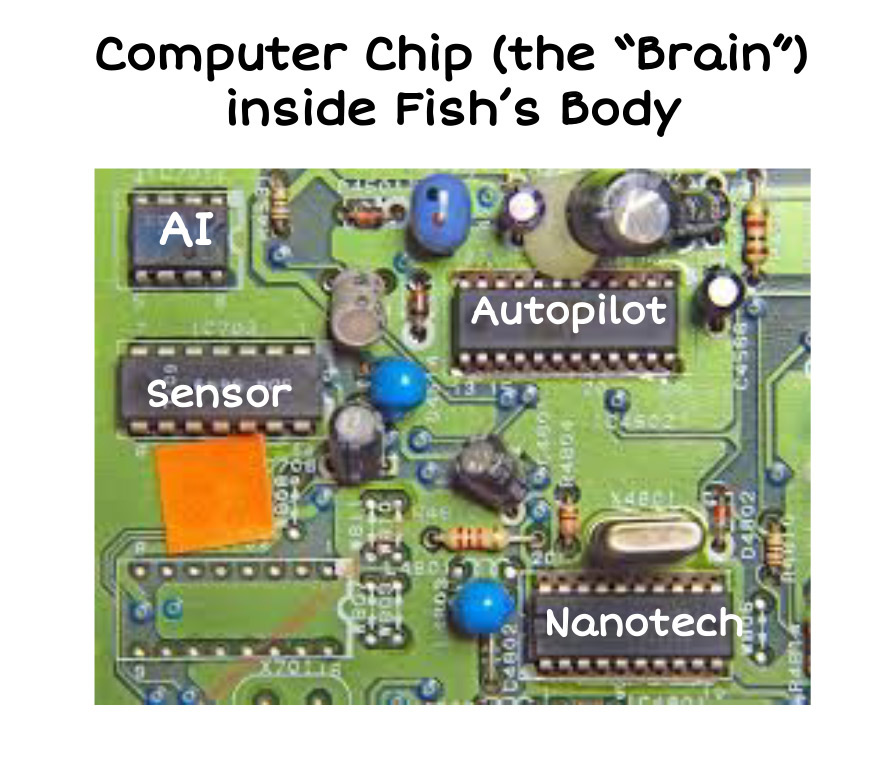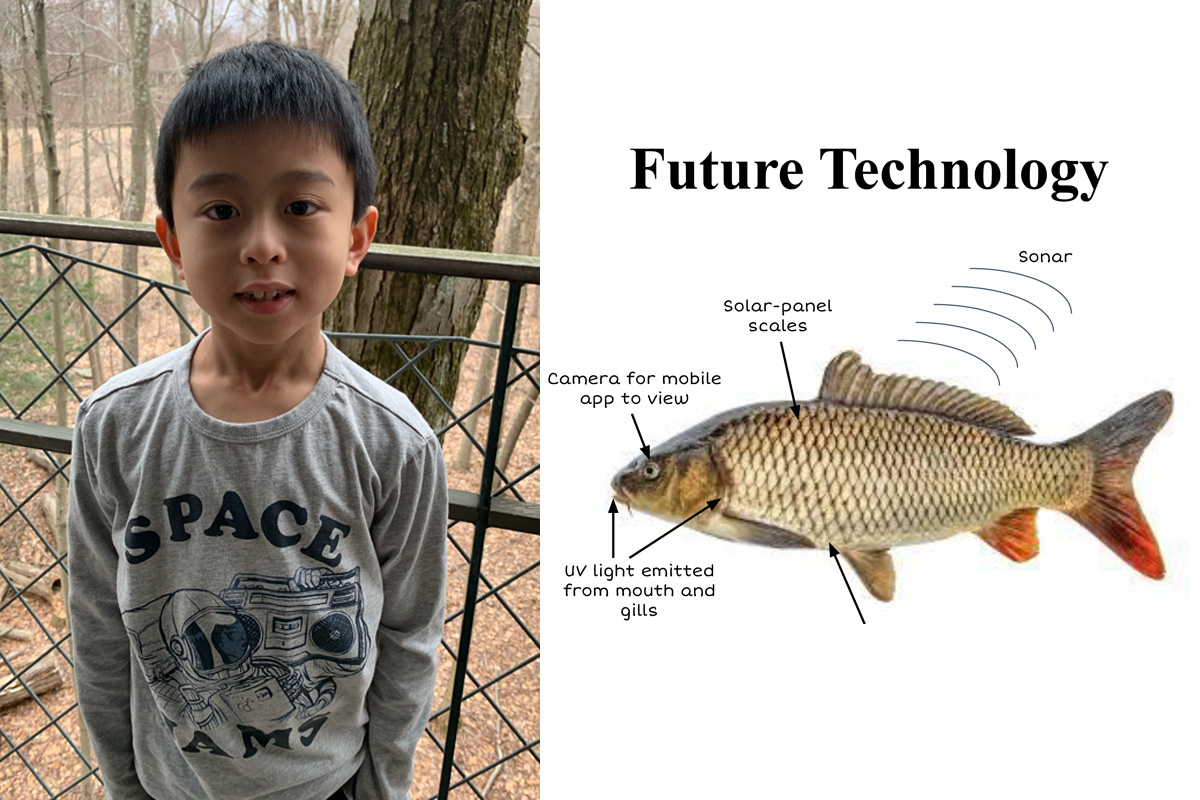The challenge: To design a device to help environmental crews track and eliminate the debris polluting America’s waterways.
The solution: A blueprint for a robotic, solar-powered “Water Pollution Resolution Fish” that relies on multiple technologies, including novel ones such as artificial intelligence and nanotechnology, to pinpoint and address potential hotspots before they escalate into natural disasters.
The response: The project has brought the inventor, Henry Park, national acclaim.
Footnote: Henry is eight years old.
The “Water Pollution Resolution Fish” was Henry’s brainchild, though Amy Gerstein, Henry’s third grade Science teacher at NEST+m, a citywide Gifted & Talented K-12 public school on the Lower East Side, lent a helping hand with the project.
But Henry’s mom, Alice Wong, is quick to credit Teachers College’s Hollingworth Science Camp, where Henry has been an attendee each summer since 2018 (following in the footsteps of his older sister, Emily), for laying the groundwork for a project that earned Henry an honorable mention from judges of the Toshiba/National Science Teaching Association ExploraVision Science competition. (The honorable mention placed Henry’s project in the top 10 percent of entries by students and student teams from around the nation.)

BUCKET LIST The Water Pollution Resolution Fish combines a range of cutting-edge technologies.
It was, after all, Hollingworth that introduced Henry to nanotechnology, a molecular model that is an essential component of robotic design.
“We strongly believe that Hollingworth plays a big role in cultivating Henry's passion for Science and we'd like to express our deepest gratitude to all of you for developing such a wonderful and one-of-a-kind Science program for elementary-aged students,” Alice Wong wrote in an email to Jacquelyn Durán (Ph.D. ’18), Director of Science Initiatives with the Hollingworth Center. In a recent interview, she added that Hollingworth is “thoughtful, in-depth and focuses on different kinds of science. The hands-on experiments encourage scientific creativity and curiosity.”
I know there are a lot of science camps in the city. But Hollingworth is one of a kind.
—Alice Wong, mother of Henry Park, a camper at TC's Hollingworth Science Camp
As for the folks at Hollingworth — they’re equally quick with a “back atcha” to their talented prodigy.
“I was blown away with how Henry integrated past camp themes of oceanography and nanoscience into his design,” says Durán.
Students across the U.S. and in Canada each year submit over 4,000 entries to the ExploraVision Science competition.
Projects are judged on “creativity, scientific accuracy, communication and feasibility of vision.” The top winners receive U.S. Savings Bonds along with expense-paid trips to Washington for the ExploraVision Awards Weekend.
I was blown away with how Henry integrated past camp themes of oceanography and nanoscience into his design.
—Jacquelyn Durán (Ph.D. ’18), Director of Science Initiatives, Hollingworth Center
Henry’s project is well-organized, colorfully illustrated and carefully lays out its rationale and approach. [Click here to see Henry Park’s project.] By 2050, according to Henry’s abstract, it is projected that there will be more plastic than fish in the ocean, rendering about 75 percent of the earth toxic to humans. Current sewage treatment technologies are inadequate because of the difficulty in cleaning up massive water pollution after it has occurred. The robotic fish, which employs artificial intelligence will run on solar energy, suck up dirty, poisonous water and trash, use nanotechnology to shrink the trash and UV light to purify the water.
For Alice Wong and her husband, Charles Park, Henry’s honor is the ultimate answer to some initial misgivings they had about sending their children all the way to Hollingworth from the family’s residence in Lower Manhattan.
“We wondered if it was worth a long commute for four weeks over the summer,” Wong says. “I know there are a lot of science camps in the city. But Hollingworth is one of a kind. It has highly-qualified teachers and the curriculum is very thoughtful. We loved it right away” — and those sentiments held through last summer, when the camp convened remotely. Hollingworth is hopeful it can welcome students back to campus in July for the camp’s 40th anniversary, and Alice Wong reports that “Henry is already counting down the days to another summer at HSC.”
Henry himself is a man of few words. But when asked what he wants to be when he grows up, he didn’t hesitate.
“An inventor,” he said.
At the age of eight he’s already on his way.
